Wake up Shake up leaders
Thank you to our KS2 WuSu leaders who have led our daily WuSu physical activity this term and taught us lots of new routines.
Thank you to Mrs Charlesworth who has helped to run our WuSu after-school club where they have created all of the routines.
Next term, we will be running a KS1 and KS2 dance /WuSu club which will lead into a dance festival after Easter.


All about levers
Our Science learning continued this week by exploring how levers work. Levers are a fantastic invention which require a smaller force to be applied to lift or move a load.
We used rulers and pencils to create our own levers and investigated what we needed to do to balance coins of different weights.
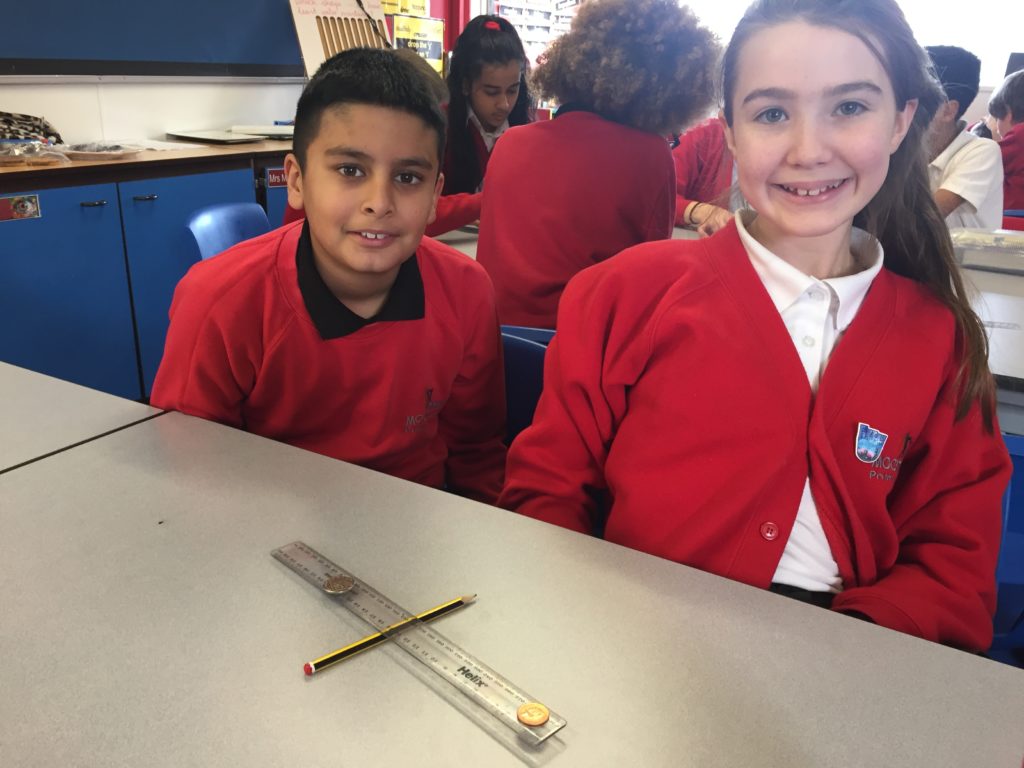
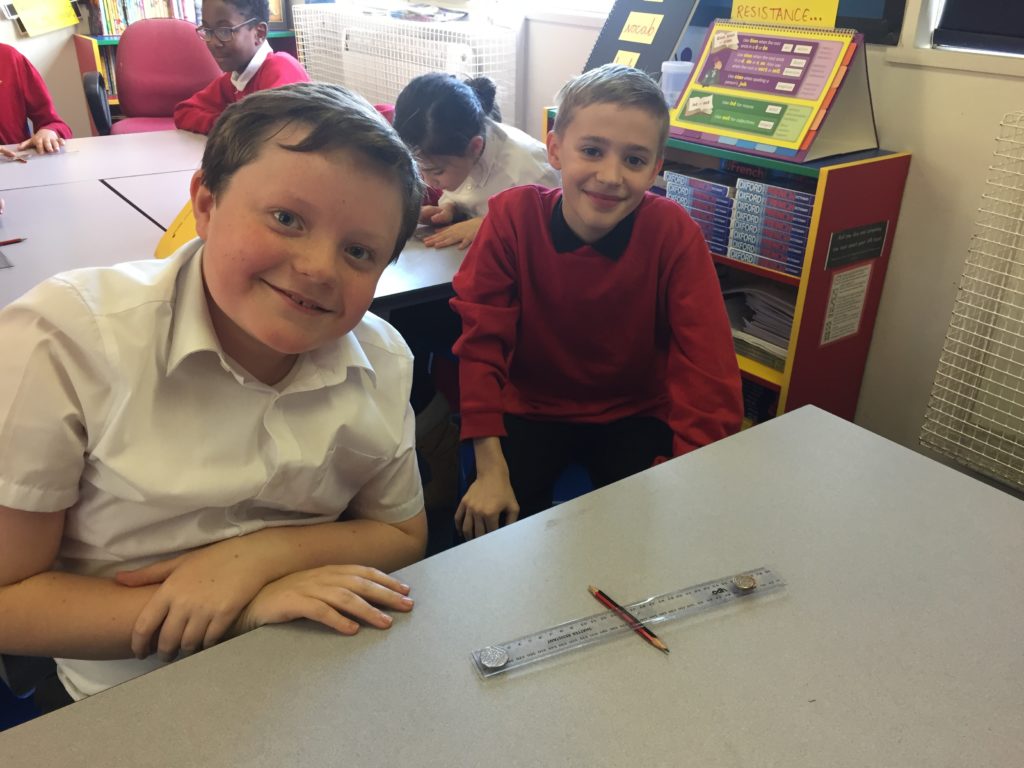
Grace made a great observation that the heavier coin needed to be nearer to the fulcrum (ask your child what that is) and the lighter coin should be further away. Once she made this suggestion, lots of us were successful in balancing two different coins.
We moved on to investigate this on a larger scale, finding out how far from the fulcrum different masses (900g, 800g… all the way to 100g) had to be to balance a 1kg mass.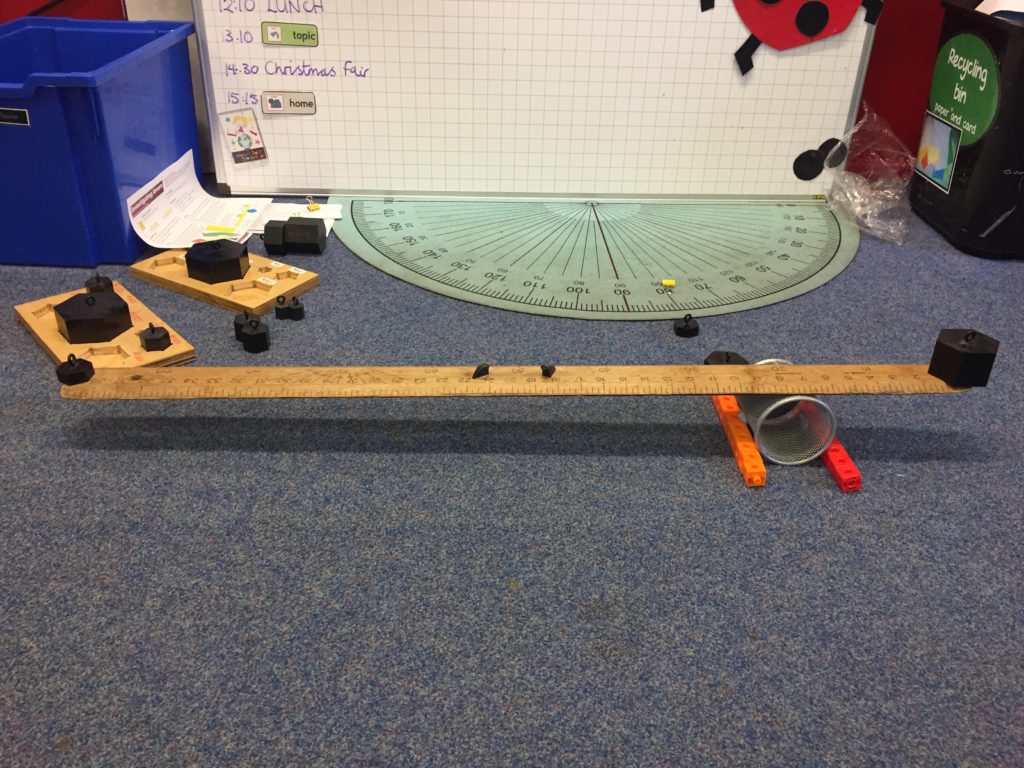
100g had to be 79cm away from the fulcrum but it did balance with 1kg! Amazing.
See whether you can create your own lever at home and whether you can find some levers around the house. We started off our learning by realising just how useful a nut cracker is – it’s a lever you know!
Creative Homework
For this week’s homework, most children decided to share what they know about a religious festival. We learnt about Christmas, Diwali, Korean New Year, Eid and the Mexican Day of the Dead.
We enjoyed learning from each other…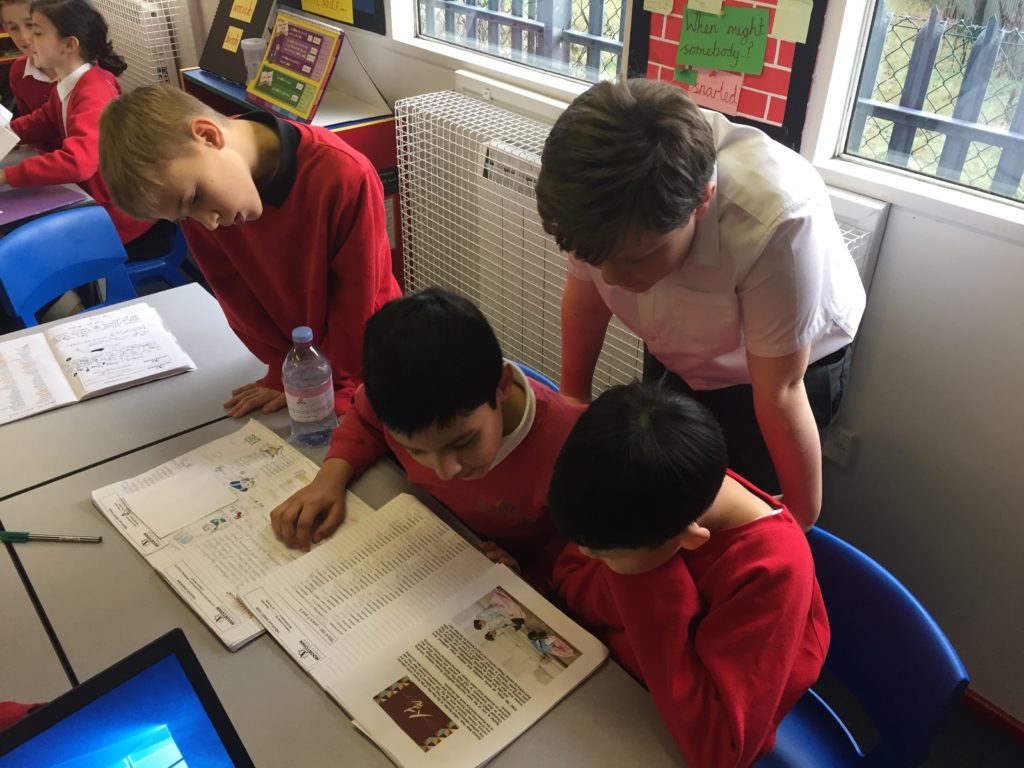
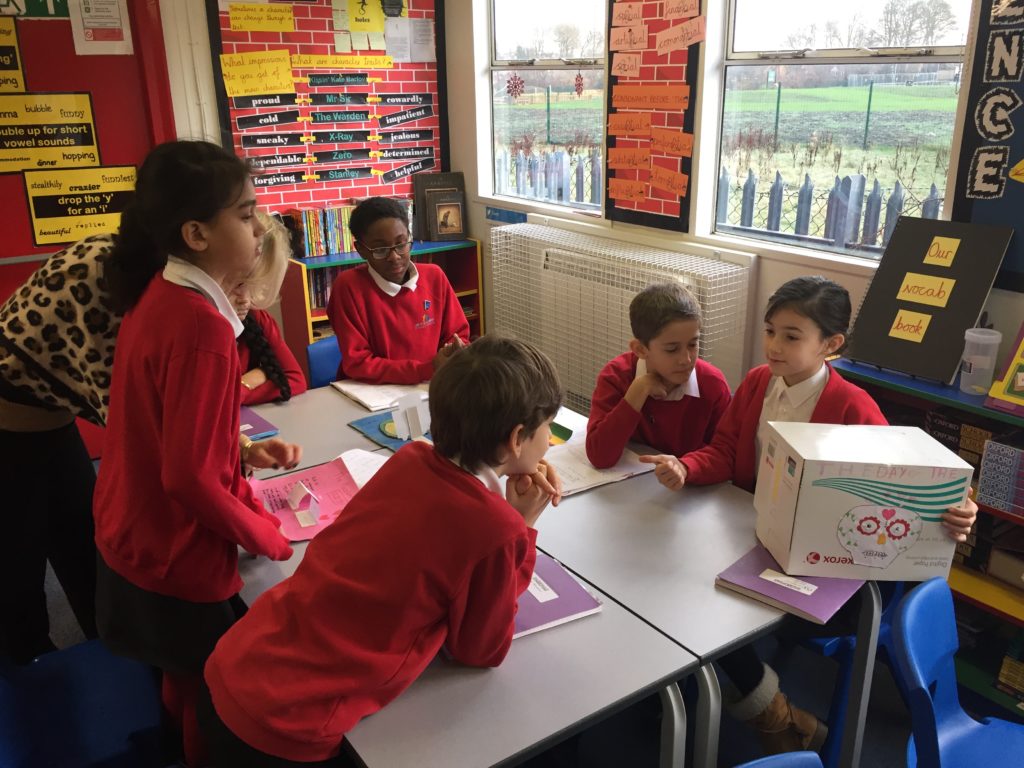
Here are some piece of homework we really liked…
Humariah created a quiz about Christmas and The Day of Dead.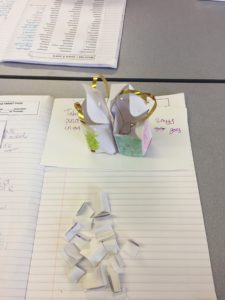
Martha wrote a letter to Stanley (the main character in our class novel)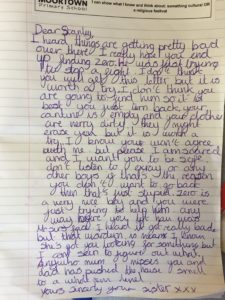 Ben created information about Christmas using PowerPoint
Ben created information about Christmas using PowerPoint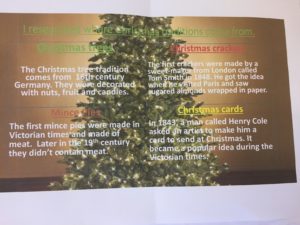
Rohan learnt all about St Kitts (where members of his family come from)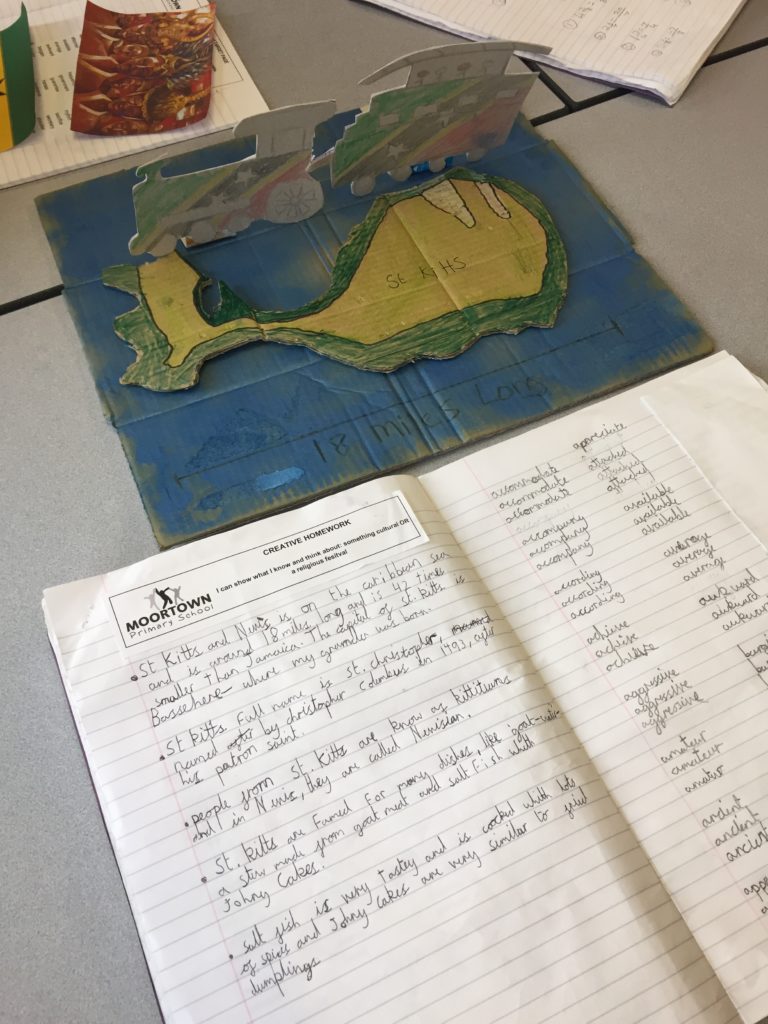
Art inspired by Stuart Davis
We’ve been looking at art by Stuart Davis for the last couple of weeks. He creates shapes which cross over each other and change colour as they do. We used this to explore complimentary colours and have used watercolour pencils too.
After exploring how to create this style of art and different media, we used our own ideas to do a final piece of art.

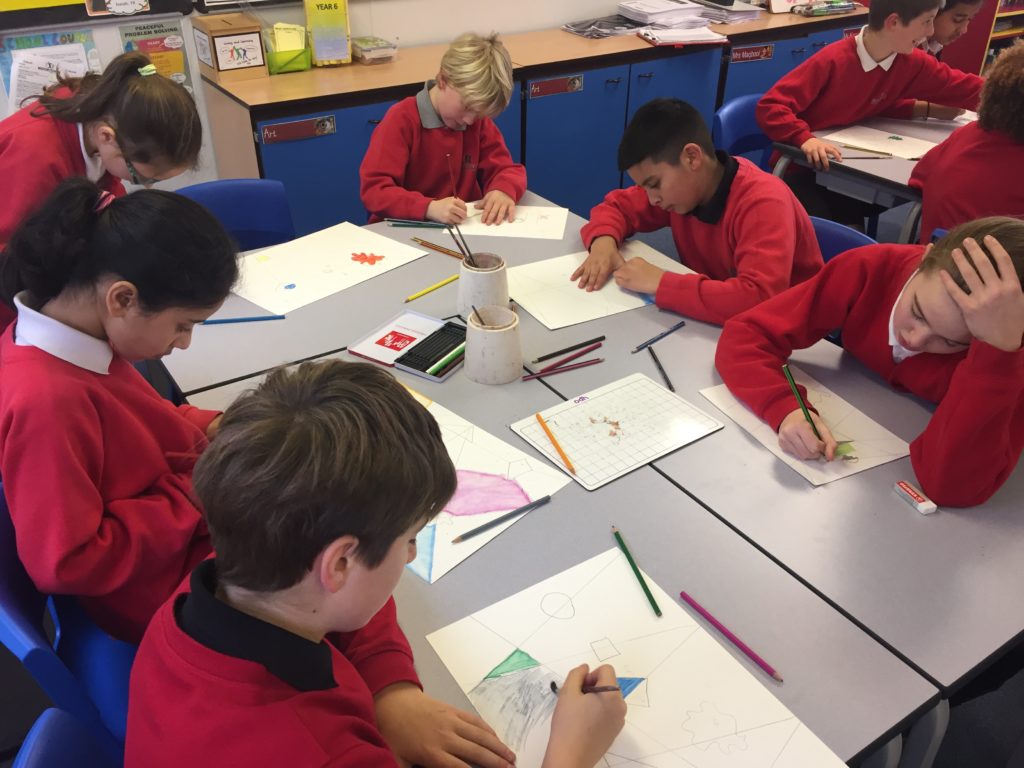
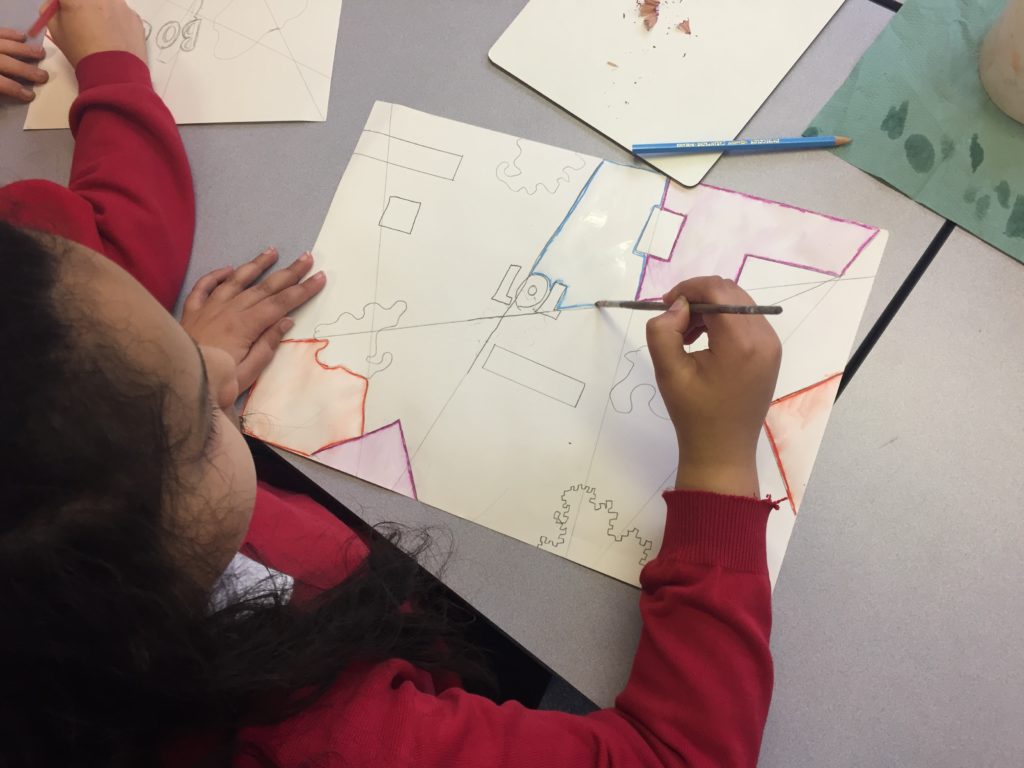
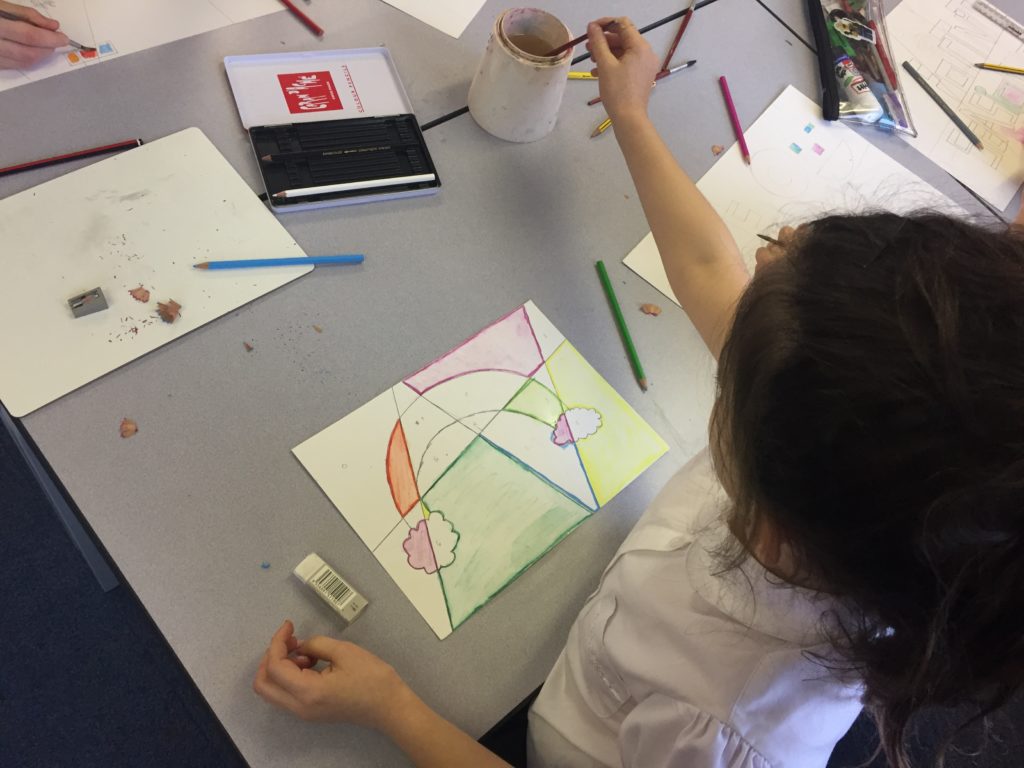
Living Streets update
We are pleased to work alongside the Living Streets local Moortown group to support our aim for children to make healthy, active and safe journeys to school. Here is an update from the group.
A BIG THANK YOU!
Both Living Streets UK and Living Streets Moortown would like to say a big thank you for all the noticeable improvements you have helped to bring about on journeys to and from school this year:
• Reduction in parking in Allerton Avenue (which is access only for residents) and on the double yellow or zig-zag lines adjacent to the school
• Reduction in vehicles mounting the pavement near to the school
• Reduction in vehicles parked with engines idling
• Increase in the number of families opting to Park & Stride from M&S* when driving is unavoidable
* M&S has 200 free 2-hour spaces available and the short walk to school is much safer and more enjoyable with fewer cars passing through key crossing points on the routes to school (such as Allerton Avenue and the
shopping parade entrance & exits).
This is fantastic progress and with continued support from all the families at Moortown we’ll see further improvements in air quality, safer ‘vehicle-free’ pavements and more families choosing to make and enjoy active trips to school.
OUR CURRENT PRIORITIES
While all the improvements we have seen around the school gates are encouraging, there is still a lot to be done. Cars, vans and HGVs continue to be driven up footpaths and recently there appears to be an increase in drivers passing through the main M&S lights while the green man is on so please be mindful of this when crossing.
We are already campaigning to deal with issues like these and the great response we had to our recent survey of parents and carers has helped us to submit a feedback document to the ‘Connecting Leeds’ consultation – a proposal to improve bus and other sustainable travel options in Moortown. We recently met with a representative from the project and are hopeful that some of the suggested pedestrian improvements will be incorporated into the scheme which is due to be delivered next year.
THE YEAR AHEAD…
The Moortown Living Streets Group is still in its first year, but we already have some exciting plans for 2019, including a project to monitor local air quality as well as some great ideas to get Moortown moving!
➢ Register to get involved or receive news here
➢ Access info on walking to school here
Thank you once again for you support to date – it’s making a real difference and we’re keen for that to continue throughout the year ahead.
Season’s Greetings!
From everyone at Moortown Living Streets Group
E: moortowngroup@livingstreets.org.uk T: @moortownlsg
Sport at Allerton Grange
Year 6 walked to Allerton Grange this morning to work with the sports leaders there.
We enjoyed drills on football skills, teamwork skills, basketball skills, agility and all sorts of other sporting skills developed through a myriad of activities.
First, we warmed up.
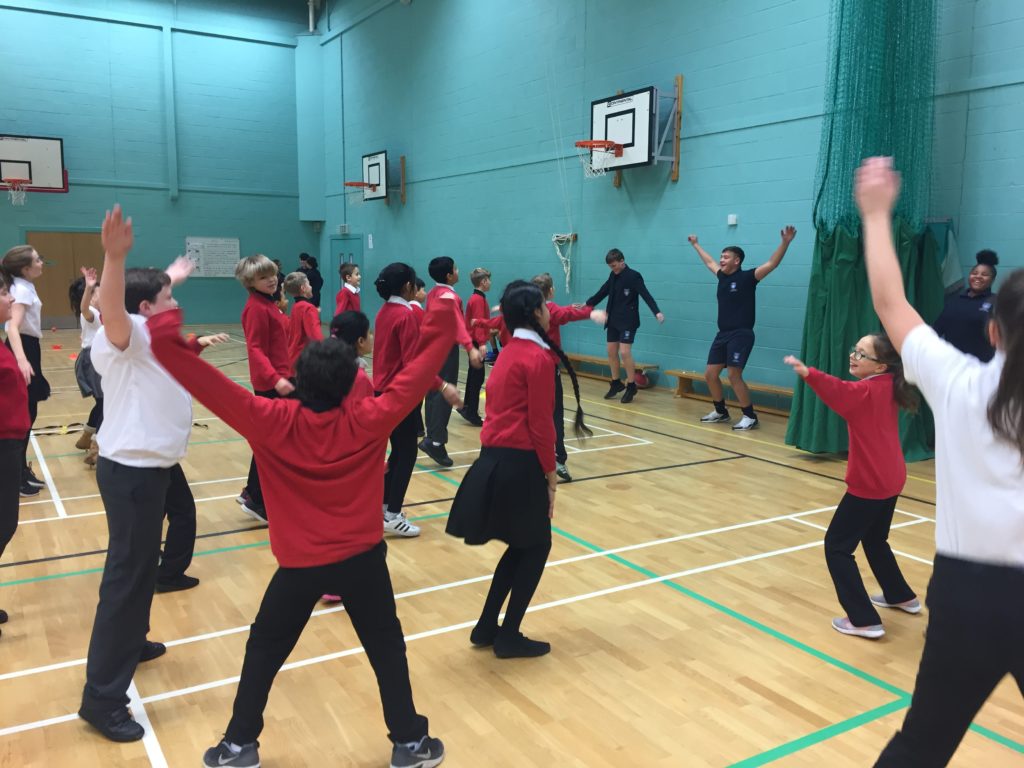
We worked on our control.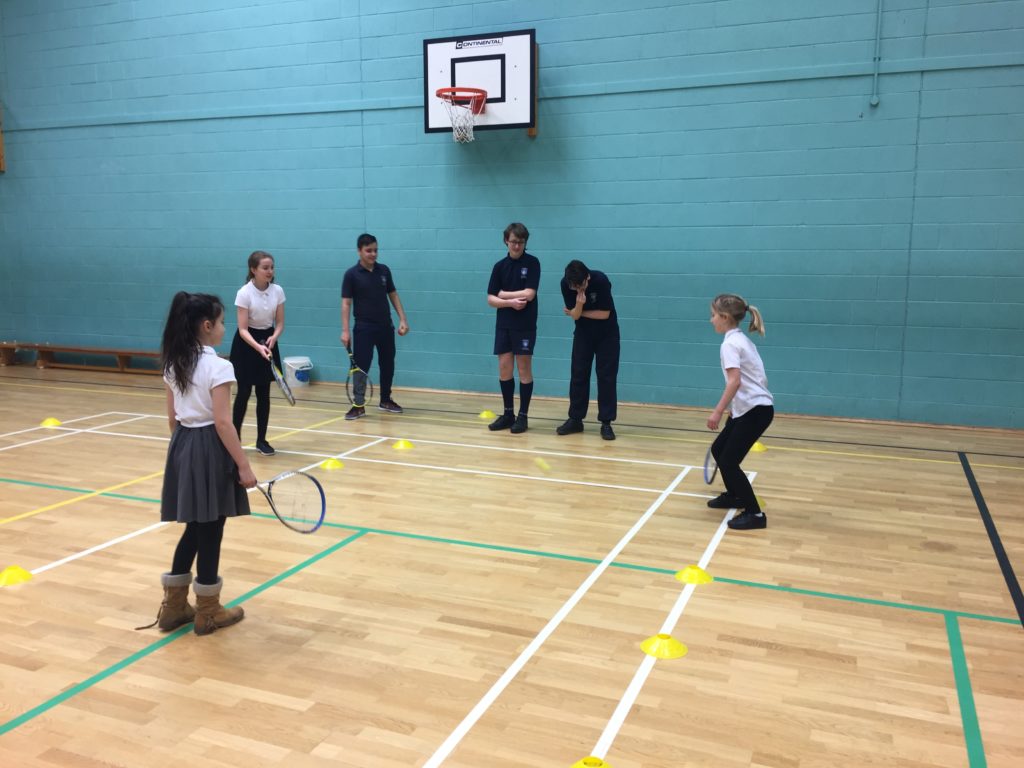
We worked on our balance.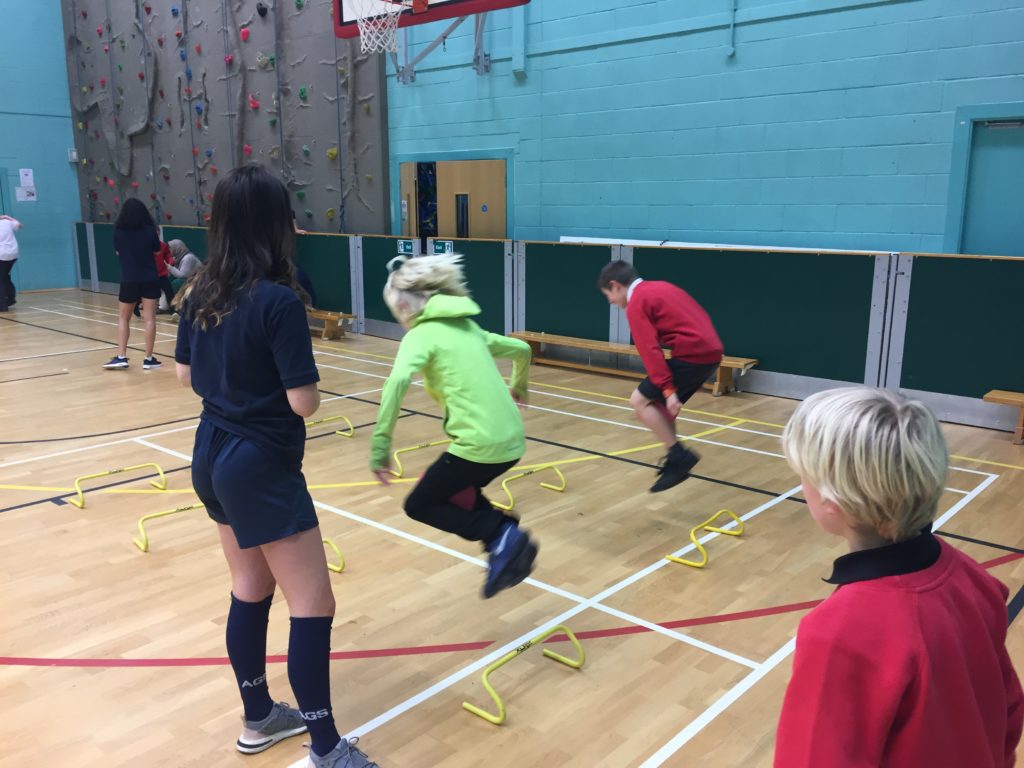
We worked on speed and agility.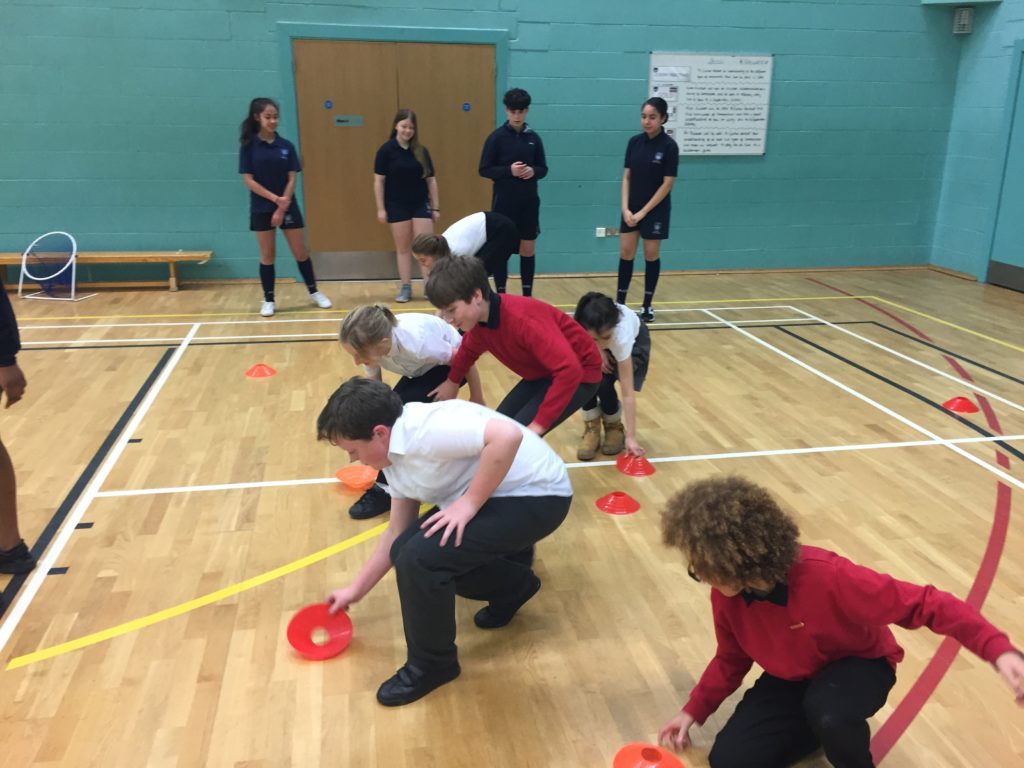
The room was constantly busy and all of the children we focused and enjoying themselves.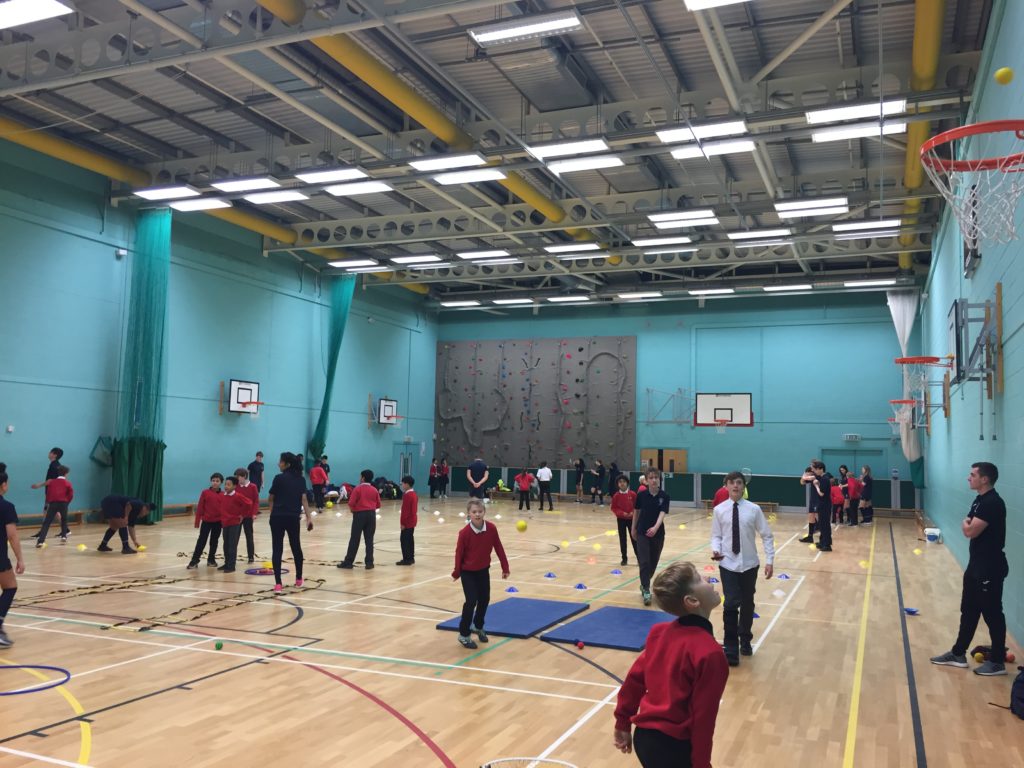
Living and Learning: Don’t be a sheep
As part of our Living and Learning: Identity theme, Year 6 have thought about what it means to be a sheep.
We discussed when we might act ‘sheepish’ and the children were really honest with their behaviour creating a rich and useful discussion around this subject.
We decided that you needed to have courage and be resilient in order to not act ‘sheepish’ and mind mapped ideas for what we could do in those situation where we’re not necessarily making decisions for ourselves.
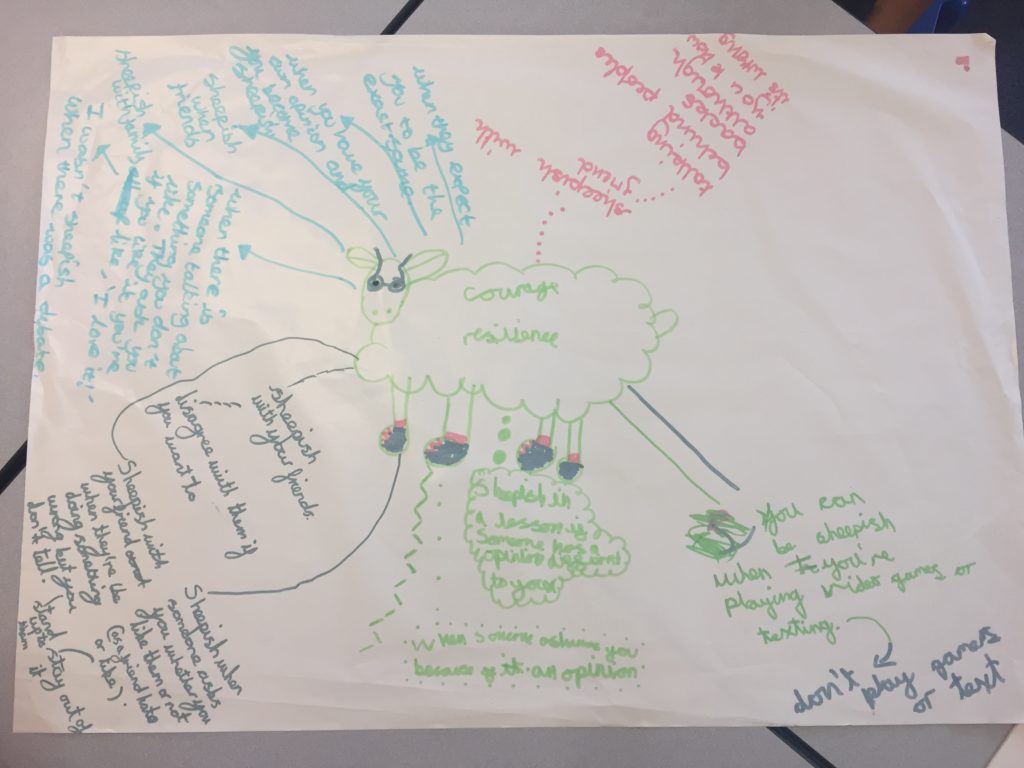
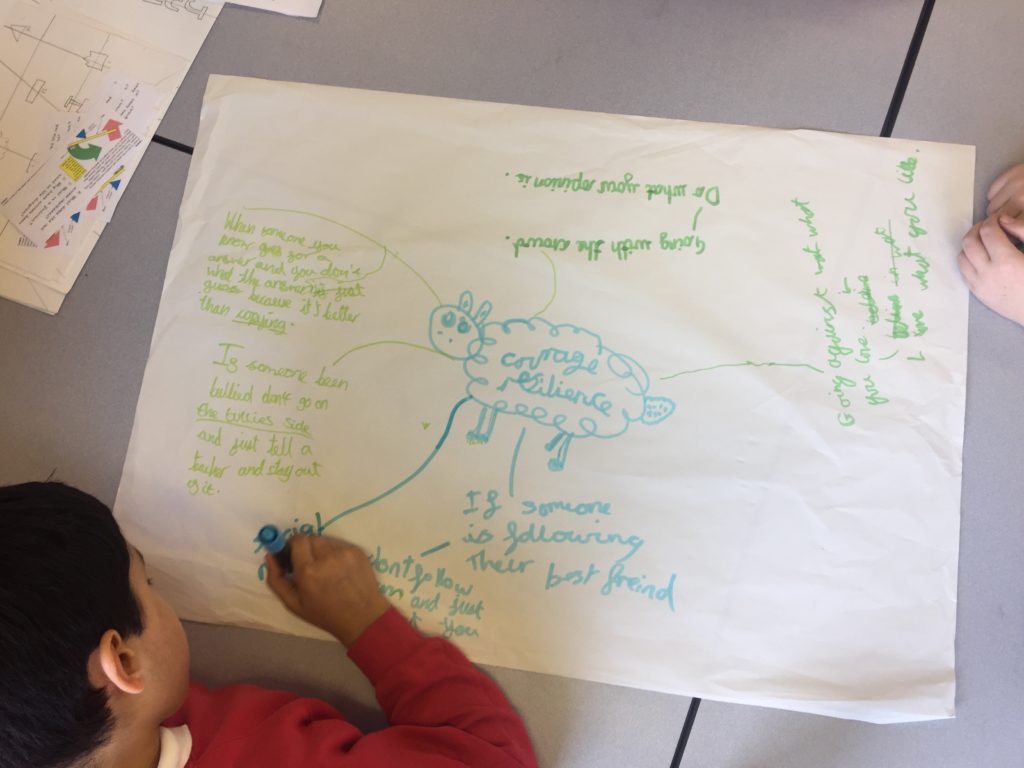
Ask your child whether they think they act like a sheep sometimes, whether they wish they didn’t and what they could do to be more independent in those situations.
Living and learning: New Childline website – Speak out Stay safe
Staying Safe is one of our Living and Learning related themed weeks this year, taking place in February.
As part of the NSPCC’s Speak out Stay safe programme, Childline has launched a Speak out Stay safe website aimed at children under the age of 12. This provides age appropriate content on topics including: bullying, family, friends, feelings, school, abuse and staying safe. It also includes games and therapeutic tools for young visitors to play and express how they are feeling.
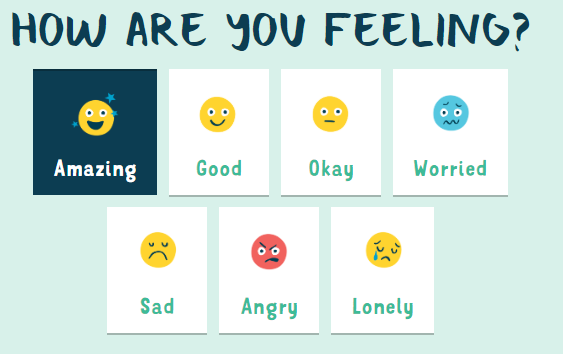
School Savings Club
The next School Savings Club paying in date is 13 December 2018 at 3.15-3.45pm.
If you’re unable to attend in person, please hand in any money to be deposited to the office in a sealed envelope addressed to Mrs Tiffany.
Paying in dates fall on the penultimate Thursday of each half term.
If your child would like to open account, please ask at the office. This is a great opportunity for children to begin to manage their own money and understand the importance of saving.
New school meal menu
Our new Spring/Summer school meal menu, starting from after February half term, is now available on our Meals page.
The menu has been created in liaison with Catering Leeds to ensure it meets the School Food Standards. We have also incorporated feedback from our school cook, pupils and parents/carers.
Pupils will continue to make their daily food choices at the start of the day to ensure they receive their first choice of main meal.